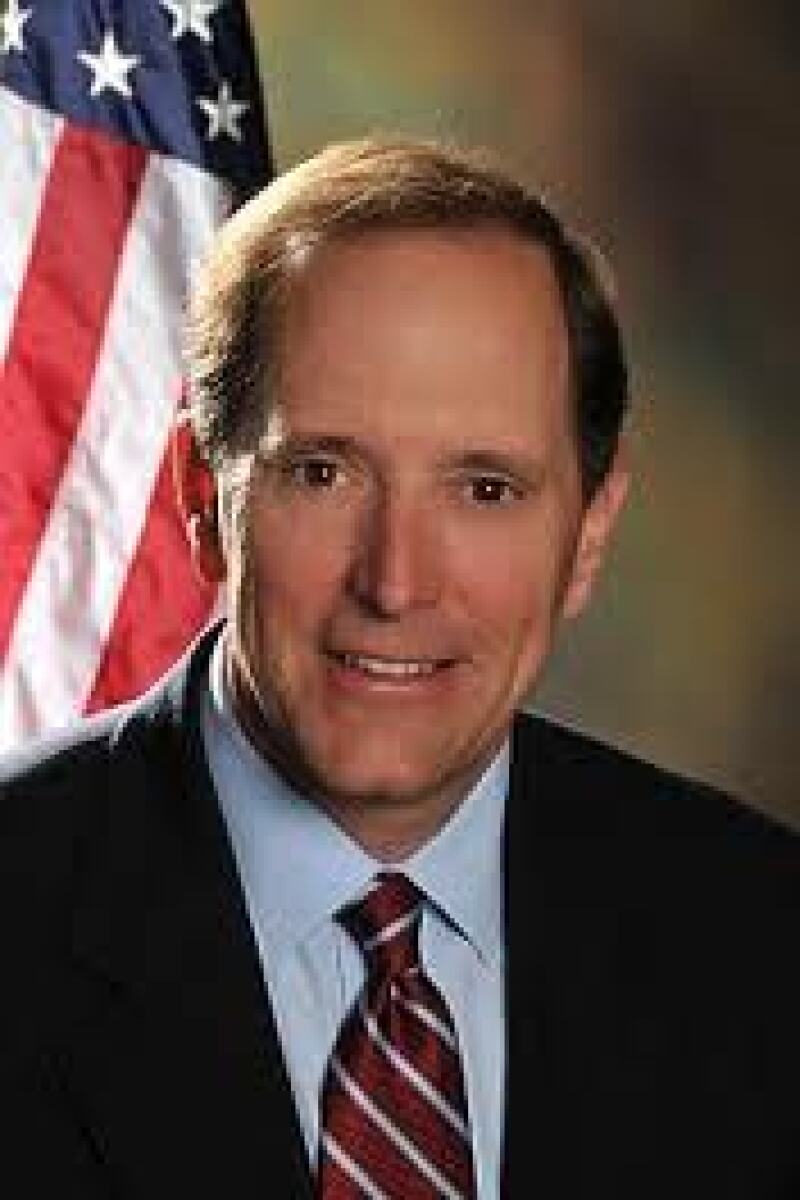In Pozen’s FT opinion piece, earlier this month, he argued that limiting corporate interest deductibility “could raise the required revenue for a 10-percentage point reduction in the corporate tax rate”.
“And this change would also improve the allocation of capital and deter excessive leverage,” added Pozen, who said the main options for funding a corporate tax rate reduction – broadening the tax base (for instance to include partnerships and limited liability companies), ending deferral, or eliminating tax expenditures – are insufficient to fund a substantial rate cut, and are not “politically feasible”.
But Jeff Bergmann, vice president, tax and treasury at computer storage and data management company, NetApp, told International Tax Review that a move to limit the deductions available to corporations for the interest they pay on bonds and other debt they issue would raise various concerns.
“It does not seem fair to me that they would change the rules on deductibility when companies made decisions on issuing debt based upon the overall impact (after tax cost). Some debt cannot be called or prepaid without substantial penalties,” said Bergmann. “Also, I’m not sure what the impact would be on investors – especially retired individuals that count on fixed income investments as there would be less paper out in the market to invest in – and on the financial industry.”
Richard Booker, corporate tax director at petroleum and petrochemical company Sunoco, said that while it is a novel concept, limiting the corporate interest deduction would not be an optimal trade-off for a reduction in the corporate tax rate. If it were to happen, though, he would like to see suitable transitional arrangements put in place.
“Assuming tax revenue neutrality, there are bound to be some winners and losers with this proposal. You could imagine some corporations that are currently highly leveraged may end up paying more in tax from the proposed change – should the value of the deduction exceed the benefit of the rate reduction – while others may end up with a lower federal tax bill,” said Booker. “Those companies availing themselves extensively of the deduction under current law should be provided a grace or phase-in period to adjust to the change at the very least.”
Despite these reservations, some taxpayers have reacted more positively to Pozen’s suggestion. Jim Ditkoff, senior vice president, finance and tax, at science and technology company Danaher Corporation, said limiting the corporate interest deduction “makes a lot of sense from both a revenue and a policy perspective” but added there are two ways to do this.
“The deferral approach would limit the interest deduction in any given year to a reasonable percentage of taxable income, such as 30% of EBITDA, with an unlimited carryover of any excess interest expense. The permanent approach would simply disallow a fixed percentage of otherwise deductible interest expense. That’s OK, too, if it’s prospective,” said Ditkoff.
However, Ditkoff agrees with Bergmann that companies that have made decisions based on existing deductibility rules should not be adversely hit by a change in the law.
“The deduction for interest on pre-enactment long-term debt should not be subject to any sort of permanent disallowance unless the debt is substantially modified within the meaning of 1.1001-3,” he said. “It is one thing to reduce the tax incentives for future debt financing. But it is not right to punish companies for financing decisions made in the past in good faith reliance on existing law. Also, it goes without saying that any interest deduction limitations should apply to net interest expense. Nobody, with the possible exception of the Swedish tax authorities, thinks it’s OK to tax all of a taxpayer’s interest income while disallowing a portion of that same taxpayer’s deduction for interest expense.”
Booker identifies wider-ranging reasons for opposing the move to limit corporate interest deductibility, arguing it would harm the US economy and instead suggesting the removal of personal income tax on dividends.
“Certain financial markets and industries could be damaged by this proposal, and a contraction in the debt markets and support industries could be detrimental to the US economy. I do not see excessive leverage as a material concern in corporate America – many corporate entities are currently flush with cash stemming from real or perceived economic uncertainties,” said Booker. “Consequently, I would reject the assertion that the proposed change is beneficial from that standpoint. Further, the elimination of personal income tax on dividends would likely be more beneficial in the efficient allocation of capital than this proposal.”

Rate reduction
Generally speaking, taxpayers and policymakers are in agreement that the US corporate tax rate should be lowered.
“Now that we have prevented a Democrat tax increase, the House Ways & Means Committee will lead the effort to reform our tax code to make it simpler and fairer,” said Dave Camp, Ways & Means Committee chairman (pictured left), “while also making American businesses and workers more competitive in the global marketplace.”
Pozen claims his proposal would enable a lowering of the 35% corporate tax rate “to a more reasonable 25%”.
Booker advocates attempts to get the 35% rate down, agreeing that a rate reduction would increase economic growth.
“In general, a lower rate would provide much better optics for the US. Rates are generally the most important tax consideration to many corporate executives, and the reduction in rate could spur growth in industry and commerce in the US that may outweigh the negative aspects of the proposal on discrete taxpayers,” he said.
Retroactive measures
One issue Booker raises in the debate surrounding comprehensive reform of the US tax code is the use of retroactive measures, saying this type of measure – which applies to various credits and incentives including industry-specific measures and certain charitable and social provisions – is his “least preferred corporate benefit”.
“When Congress retroactively reinstates corporate benefits, they incentivise no one as the company has either made the commitment to spend the funds or has chosen not to. Consequently, in those instances, taxpayers would generally be better served by Congress not having to borrow money to extend the benefit (when a federal surplus exists, this would not hold),” he said. “In other instances, the companies that receive most of the benefits are those larger entities that have the resources to ensure they qualify for the benefits. This causes distortions that I would argue tend to outweigh the perceived benefits sought through the enactment of such provisions. Consequently, a broader corporate tax base in this respect would likely benefit the US tax structure.”
The complexity of the tax code, and the plethora of tax breaks and incentives contained therein, means the removal of any provision would impact a certain section of taxpayers, hence the level of lobbying surrounding provisions in the tax code. Because of this, Booker recommends focusing on cutting spending to bring down the deficit.
“Every existing provision in the corporate code is important to some industry or group. Consequently, to best benefit the US taxpayers and economy, a reduction in federal spending should be Congress’s top priority in reducing its deficit,” said Booker.
But with the length of time needed to deal with the fiscal cliff, action on any of the proposals above should not necessarily be expected soon, particularly given Washington leadership’s recent track record, warned Jim Fuller of Fenwick & West.
“If they can’t do what should be the easy stuff in Washington, how will they ever do the more important fundamental stuff?” he asks.










